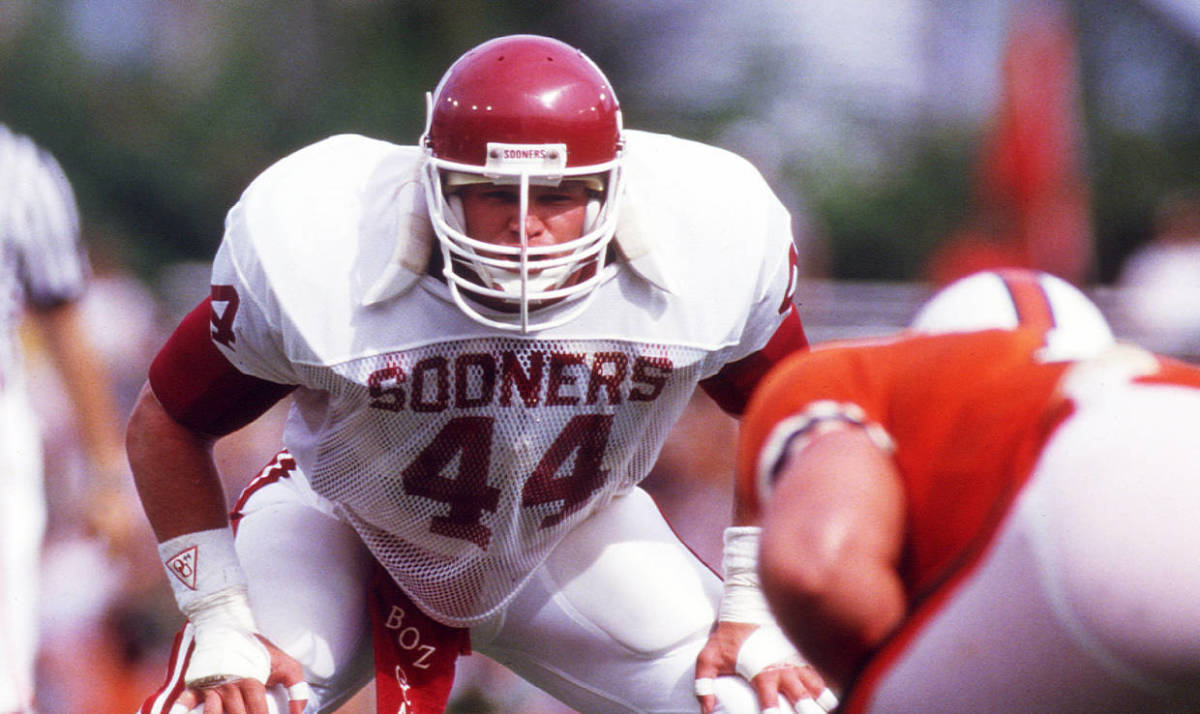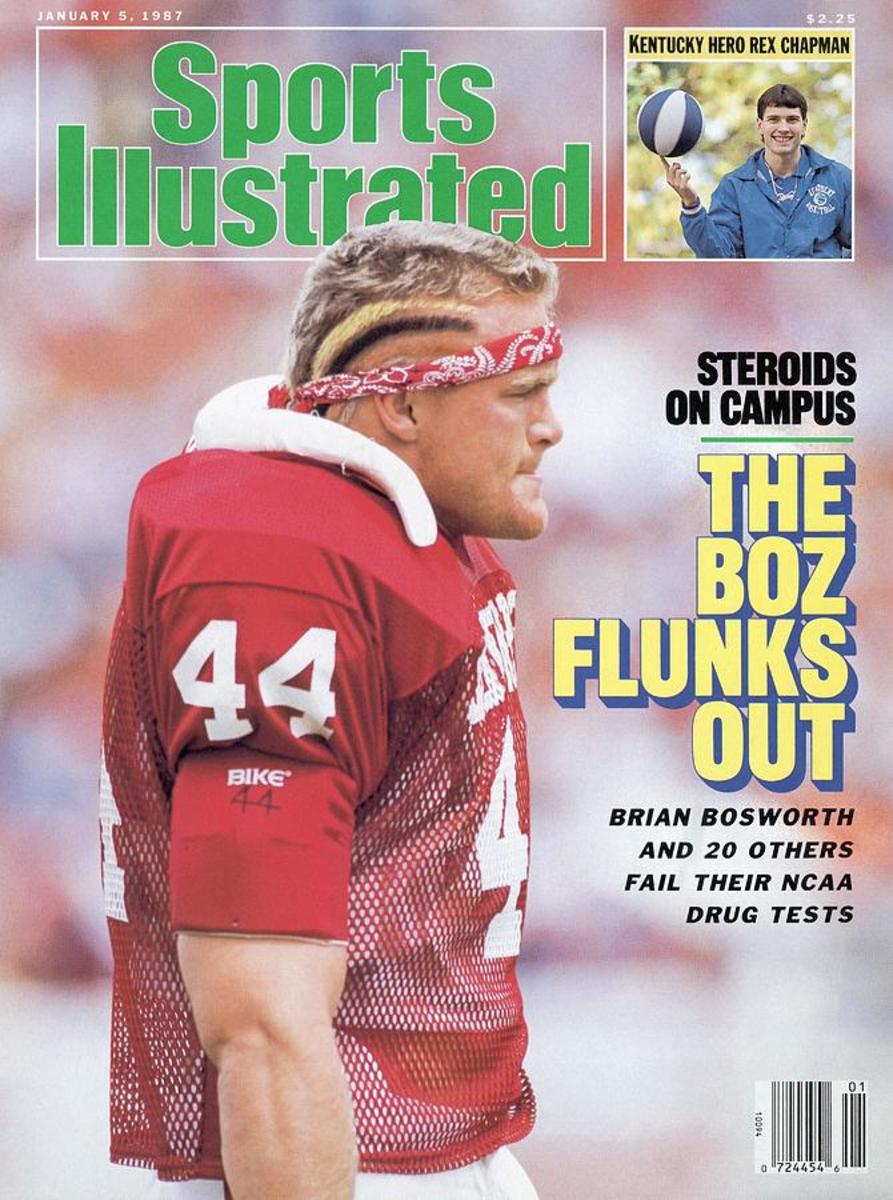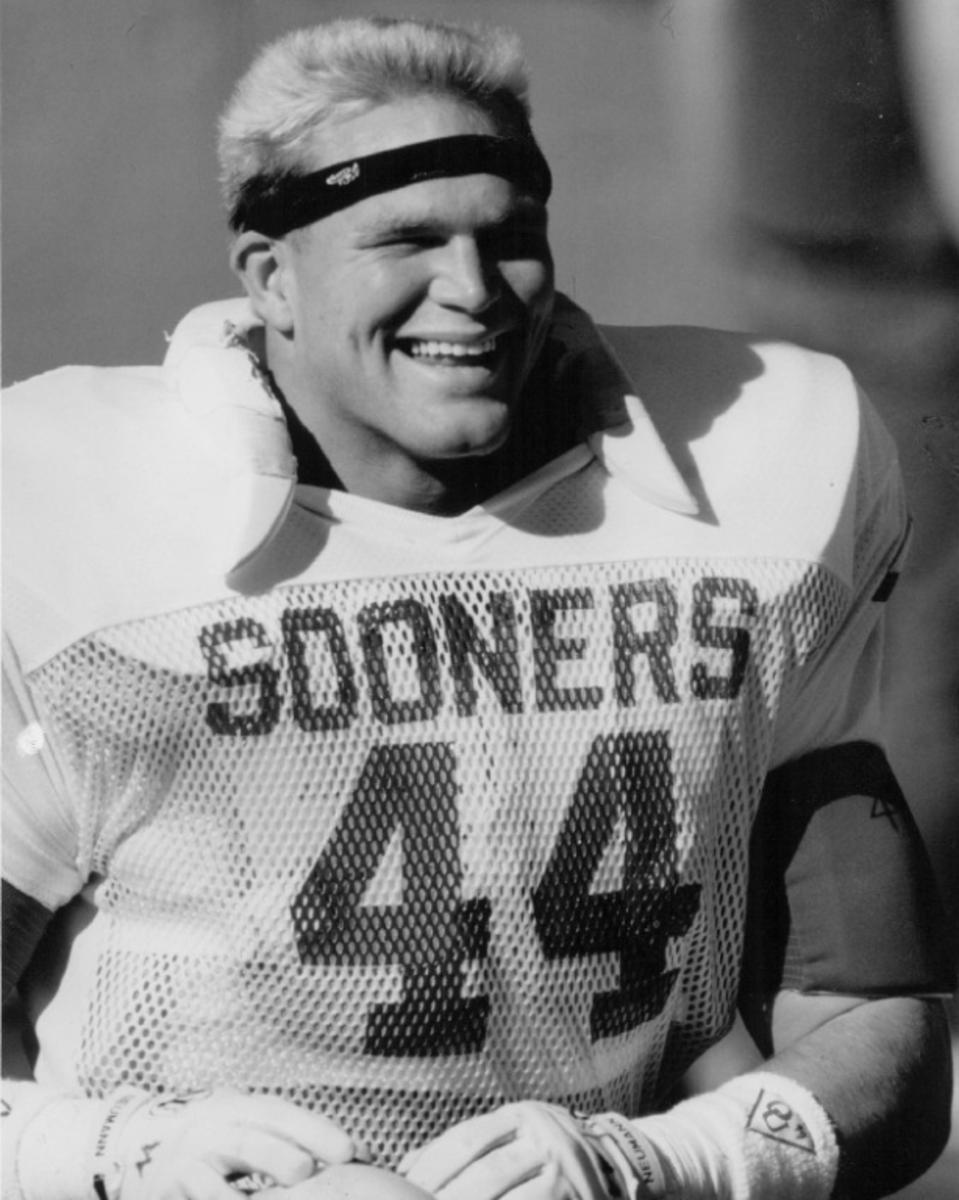Ex-Oklahoma LB Brian Bosworth: NIL 'Brings Distraction, Dark Money' to College Football

Brian Bosworth knows he might sound like the “get off my lawn” guy, and realizes he probably comes off as disingenuous or even hypocritical.
But like the rest of us, “The Boz” also looks at life through a different lens at age 56 than he did at age 21.
And as much as he would have jumped all over every earning opportunity he might have had as a two-time Butkus Award winning linebacker at Oklahoma in the 1980s — he does not like NIL.
“I’m not a big fan of it,” Bosworth said Wednesday morning in an interview during The Hoover and Mayes Show on the Sports Animal Tulsa. “I think it brings distraction, it brings brings a level of dark money and the shadows that come along with it.”
When posited with the idea that Bosworth would have been the top earner in college football in 1985, and then asked if it would have been a good thing, he was crystal clear.

“No, I don't believe it would have been,” he said.
Bosworth said the money might have diminished his inner motivation and doused the fire that made him such a fierce competitor.
And that — or leaving school early for the NFL — would have disappointed his parents.
Bosworth already received the most attention of any OU player in that era because he was so outspoken, but he said Wednesday that adding “a few dollars” to the equation would have hurt the team chemistry on a Sooner squad that went on to win the 1985 national championship.

“It brings probably an unspoken animosity in the locker room,” Bosworth said, “because all those players are working hard, and all those players should be working for the same goal and they all should be rewarded the same amount, because they're part of the team.”
Bosworth extolled the virtues of an athletic scholarship — a free college education, free room and board, free tutoring, free health care, free counseling, free fitness and nutrition training — and advocated other ways to compensate student-athletes financially.
“If they want to pay the players, pay them evenly,” he said. “And each player, at the end of each calendar year — as long as they stay in good graces with their grades and, you know, they stay on scholarship and they're going to graduate — then set aside, I don’t know, 10 grand a year that goes into an annuity.”
Bosworth said a program for helping players transition out of a lifetime of competition, such as job training or financial literacy — and included continuing health care — would be helpful.
“But take care of all the players,” he said. “Take care of all the athletes across the board: softball, basketball, doesn't matter. There’s enough money there. Set aside a nominal amount so that when they get out, there's something that they can touch —but they only can touch it once they graduate. Once the commitment has reached its end.”
Bosworth also isn’t much of a fan of the NCAA transfer portal, which allows players to transfer freely between schools as many times as they want with a one-time exemption that allows for immediate eligibility after a transfer.

“When I signed on to Oklahoma,” he said, “my intention was, I want to get a scholarship, I want to get an education, and I want to graduate and I want to have great years playing and create great memories.
“I think the big one now is they’re trying to (attain) the first million dollar college football player,” Bosworth said. “You know, it doesn't ring true. And it's gonna ruin the game, and it's gonna bring — like the transfer portal allows these players to pop from team to team to team to team — it's just not good for the game. No, I don't like it. I think it changes college football to a semipro league.”
Want to join the discussion? Click here to become a member of the AllSooners message board community today!
Sign up for your premium membership to AllSooners.com today, and get access to the entire Fan Nation premium network!
Follow AllSooners on Twitter to stay up to date on all the latest OU news.
